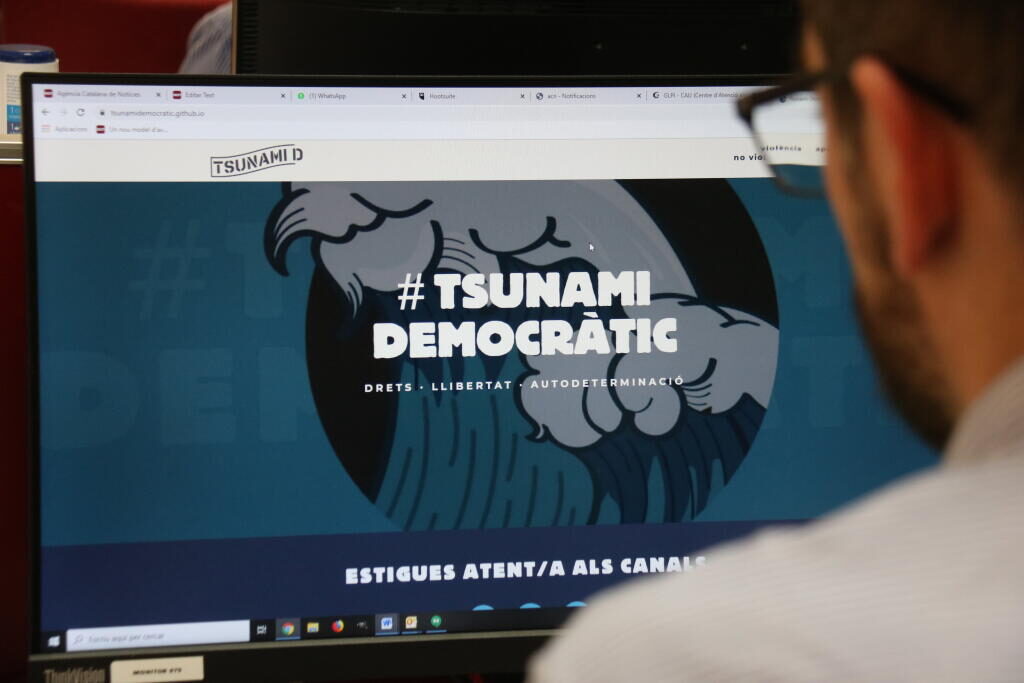07.11.2019 - 15:23
|
Actualització: 07.11.2019 - 16:23
Amid the noise of the election campaign, now turned into an auction to decide which Spanish party can offer the most measures against Catalonia, Spain’s official State Gazette [BOE in Spanish] has published a presidential order bringing in urgent measures in the field of digital administration for security reasons. The order was approved in the Spanish cabinet’s most recent meeting, the second to last before next Sunday’s polls.
Spain’s PSOE government had explained that the new legislation aimed to ensure that public administrations in Spain would use computer servers located in EU countries, a condition which even Spain’s own Ministry of the Interior fails to meet, as their servers are in the US. However, now that the government’s order has been published, it turns out that it is even more far-reaching: it allows the Spanish authorities to monitor the web and take online action, shutting down websites or servers without a court order. This measure seeks to thwart the Catalan government’s proposed Digital Republic initiative and, in practice, it places Spain under a state of digital siege.
Until now the so-called Sinde Act —also passed by a PSOE administration— allowed the Spanish authorities to shut down any digital communication means without a warrant, for reasons of state security, protection of the general public, emergencies, saving lives or interference with other networks. However, PM Sánchez’s order adds new grounds for censorship by including a hypothetical risk against public order and “national security”. The PM’s order aims to prevent the Catalan government from contracting servers outside Europe, as they did with the 2017 referendum on independence, and to foil any attempt to hold an online ballot.
Attack on the freedom of expression
The Spanish government argues that any decision taken may be later reversed by a court of law —once the censorship has achieved its intended purpose. In the case of Catalonia, it would be naive to hope for anything from Spain’s justice system. Pedro Sánchez’s order is an attack on the freedom of expression and it should be ruled unconstitutional in Spain, if we had a true separation of powers. The move is devised to tackle Catalonia’s independence movement, but it effectively restricts the liberties of all Spanish citizens, whose rights are being trampled on.
With the excuse of thwarting Catalonia’s secession efforts, they are trashing Spanish democracy. The rights that independence supporters are being denied today will be denied in the future to any resident in Spain, if the incumbent government believes they are acting against “national security”. Bringing in this new piece of legislation only a few days before the November 10 polls also reeks of blatant electioneering: they are hoping it will highlight Sánchez’s hawkish stance on Catalonia, which has permeated his entire campaign. This time it is not an election vow, like a ban on unofficial referendums, but legislation that has actually been enacted and could be used next weekend against Tsunami Democràtic, which is the Spanish government’s main headache at the moment, as the anonymous protest platform has announced a programme of outdoor, non-violent events for Saturday November 9, the day before the Spanish polls.
Sánchez’s order unwittingly acknowledges the proposed Digital Republic and should give the independence movement a hint as to how it should work if we truly wish to get out of the authoritarian pit where Spain has ended up. Pedro Sánchez’s reaction endorses the need to create political structures beyond the reach of Spain’s courts, such as the Council for the Republic in Belgium, or online, like the Digital Republic. Some within the independence movement are still skeptical about these structures, but the Spanish authorities take them very seriously. So much so that they are passing new legislation in order to strike them down. Pedro Sánchez himself admitted that much when he stated that “there will be no independence, neither online nor offline”.


